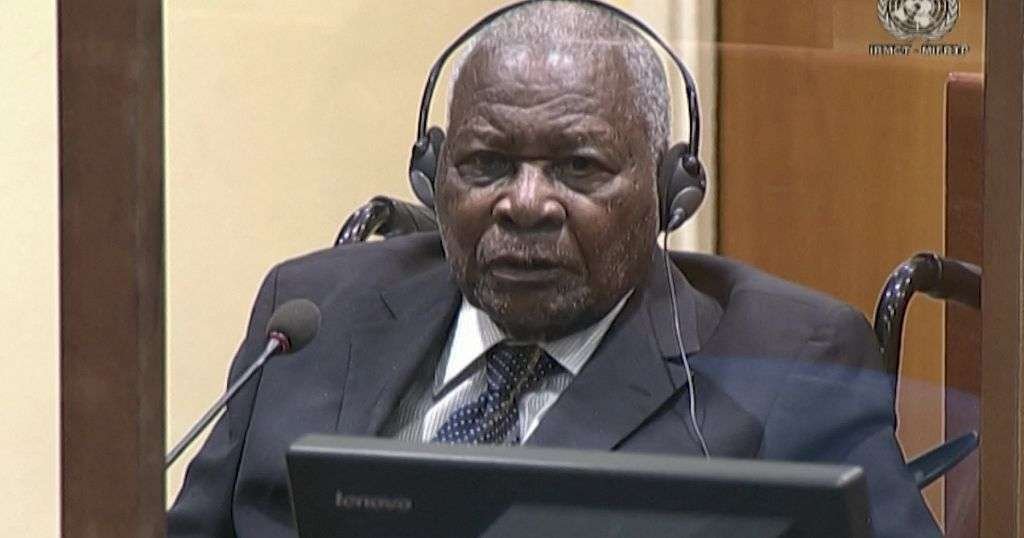Kigali, Rwanda – (African Boulevard News) – A UN war crimes court has declared Rwandan genocide suspect, Felicien Kabuga, unfit to stand trial due to dementia. The 87-year old is accused of playing a key role in the 1994 genocide that claimed over 800,000 lives.
The court, based in The Hague, Netherlands, ruled that Kabuga’s health is in a deteriorating state, making him incapable of standing trial. Kabuga was arrested in France in May 2020 after evading justice for over two decades.
Kabuga, a wealthy businessman, was dubbed the “financier of the genocide” for allegedly bankrolling the ethnic Hutu extremists who orchestrated the genocide. He was indicted by the International Criminal Tribunal for Rwanda in 1997 on seven counts of genocide, complicity in genocide, and crimes against humanity.
According to the court, Kabuga had symptoms of severe dementia, including memory loss, disorientation, and poor physical coordination, which prevented him from participating in his defense. His lawyers had argued that he was mentally incompetent to stand trial, and the court agreed.
“The chamber finds that the accused’s physical and mental condition is incompatible with his being tried,” said Judge Iain Bonomy, reading the decision.
The ruling means that Kabuga will no longer face trial at the UN court, and his case will be referred to a separate mechanism in Tanzania, the International Residual Mechanism for Criminal Tribunals, for further action.
The decision by the war crimes court has received mixed reactions, with some experts in Rwanda arguing that it could be a setback for accountability and justice for genocide victims.
“While we respect the court’s decision, we are concerned that it sends the message that age and infirmity can be used to escape justice,” said Jean Pierre Dusingizemungu, the executive secretary of the genocide survivors’ umbrella organization, Ibuka.
The case of Felicien Kabuga remains one of the most high-profile cases to emerge from the Rwandan genocide. While the latest court decision may have closed the door on his UN trial, it is expected to reignite the debate on the need for justice and accountability for war crimes committed during the 1994 genocide.

